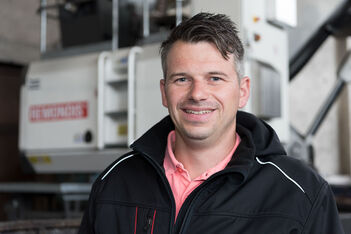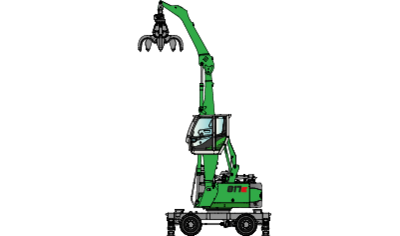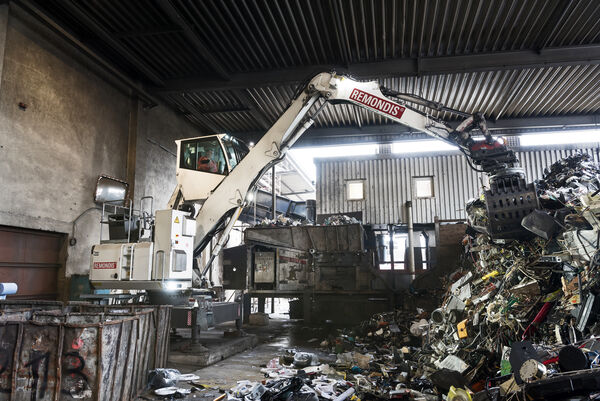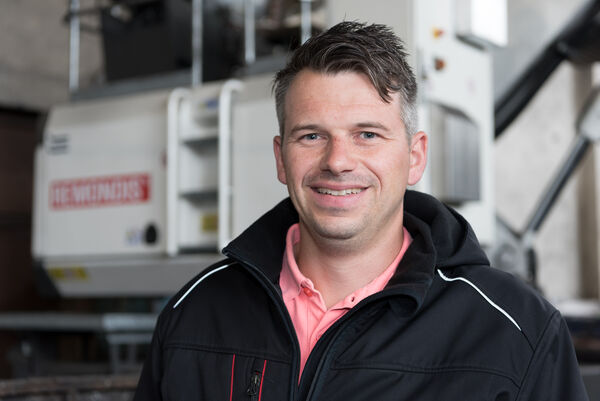Remondis on the way to having a CO2 neutral recycling site with the electric 817 E from SENNEBOGEN
An exciting project with the potential to be replicated at other branches: Remondis' dismantling center in Lünen has set itself a target going forward of working exclusively with emission-free electric machines. This includes using SENNEBOGEN's recycling specialist, the 817 E series material handler. This small and very compact solution from SENNEBOGEN is part of a system at the Lippe plant that sorts, dismantles and recovers recyclable material from old electrical appliances.
Remondis is one of the biggest players in the German and international recycling market with around 36,000 employees, 1,400 of which are employed at the Lippe plant alone. A wide variety of waste materials are processed at Lippe, including metal slag, plastics and also old electrical appliances. In 2016, at its primary location in Lünen, which is also the largest industrial recycling center in Europe, the company started a project for emission-free reprocessing of recyclable materials. A constituent part of the old electrical appliance dismantling center is a stationary SENNEBOGEN material handler that operates entirely without producing emissions and fits perfectly with the recycling expert's new concept.
Closed cycle
The plan to make all the recycling processes at the dismantling center in Lünen CO2 neutral, is a pilot project for other subsidiaries and Christian Vollmer, Purchase Manager Assets & Services at Remondis, explains the thinking behind it. "For us, this project is about taking a holistic approach. We operate our electric machines using self-generated electricity and when they get to the end of their service life, they can be completely recycled and go back into the cycle." Until then, however, the North Rhine-Westphalia site will first benefit from the active support of the stationary 817 E series in extracting waste material. In a partially open, 600 sqm hall, it extracts cable waste and sorts plastics and metals that have been delivered from across Europe.
Highly efficient continuous use
The 817 E series is equipped with a 75 kW electric engine, which, as well as being good for the environment, also makes good business sense. In Lünen the machine operates across a three-shift system, racking up about 5,000 operational hours a year. When this is compared to the consumption costs of an equivalent diesel engine, the initial investment in the electric drive and power supply is soon offset. At the Lippe plant, electricity is generated by an on-site biogas facility and an animal carcass incineration unit. This means that Remondis is not dependent on external electricity providers or subject to electricity price fluctuations.
"Experience has shown us that electric material handlers retain their value much better and suffer less from wear and tear. Longer service intervals and the elimination of oil changes primarily save us resources and, of course, money," says Christian Vollmer, giving further reasons for using an electric 817 E.










